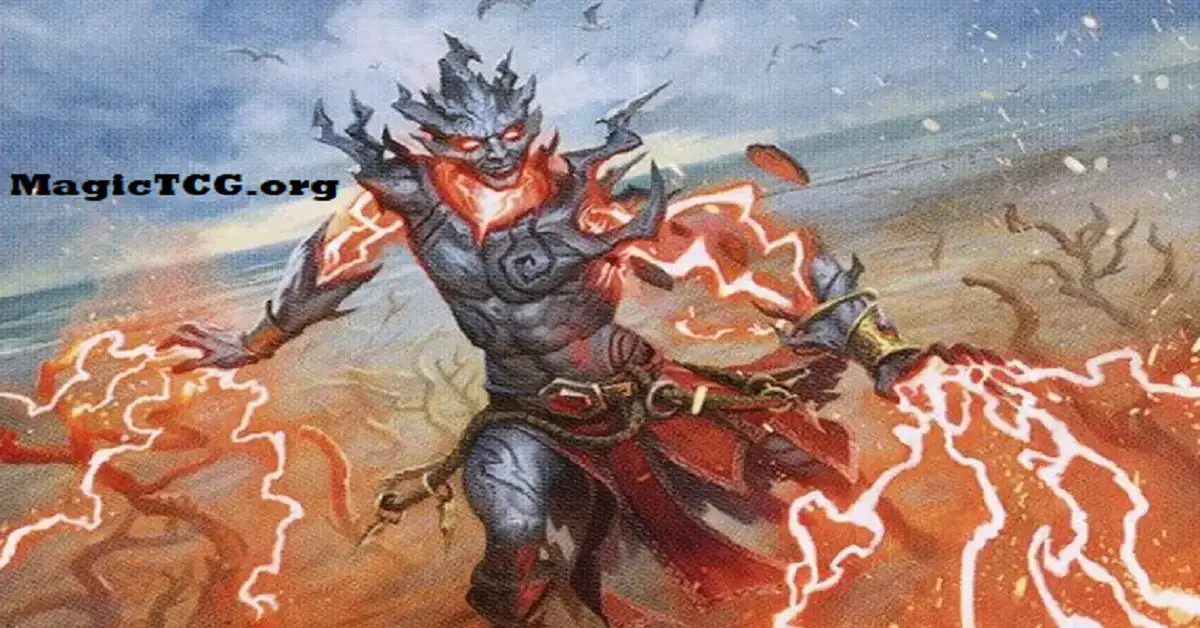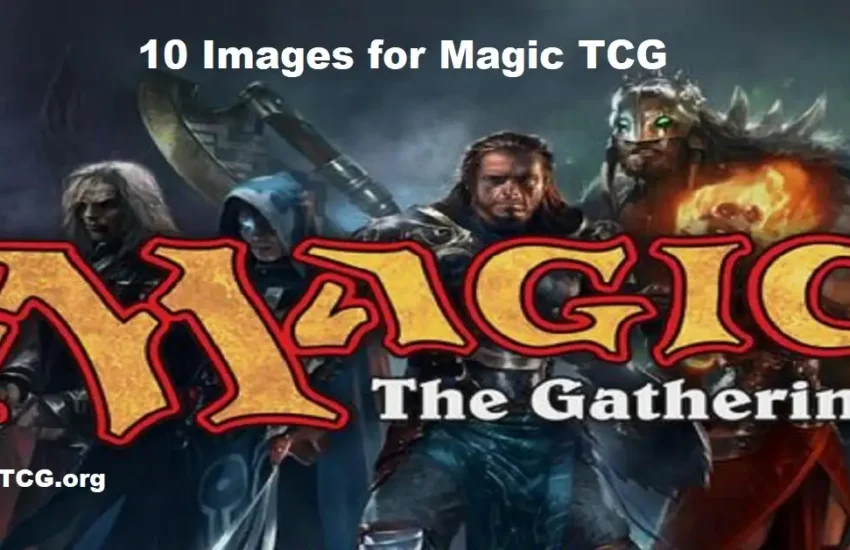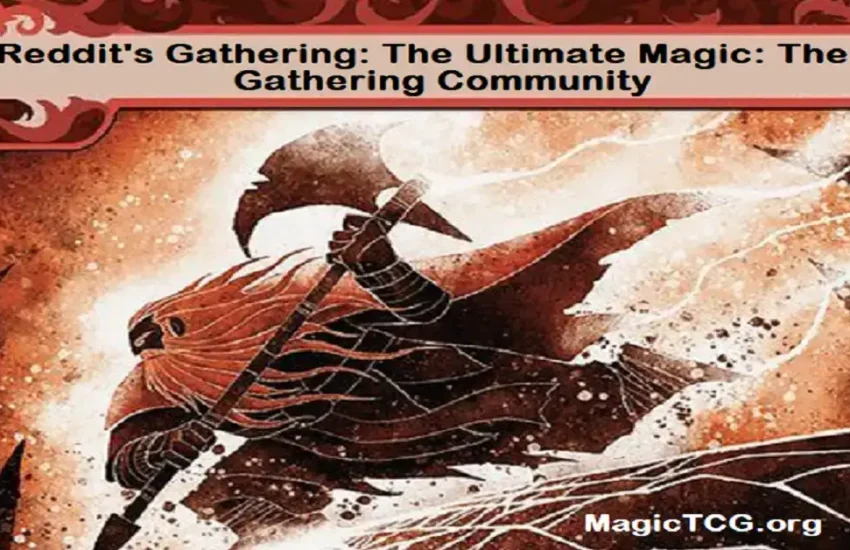Mana and Mystics: The Gathering Hub for R/MTG Enthusiasts
Table of Contents
- Overview of R/MTG
- Introduction
- The Latest Expansion
- Impactful Cards from the Current Meta
- Deck Building Tips for Beginners and Veterans
- Community Spotlight
- Looking Ahead
- Conclusion
- FAQs
Overview of R/MTG
| Section | Description |
|---|---|
| Introduction | Brief overview of Magic: The Gathering and its significance as a dynamic cultural phenomenon. |
| The Latest Expansion | Detailed look at “Thrones of Eldraine,” exploring new themes, mechanics, and strategic impacts. |
| Impactful Cards from the Current Meta | Analysis of key cards influencing the competitive scene and their effects on gameplay. |
| Deck Building Tips for Beginners and Veterans | Guidance on creating effective decks, with tips tailored to different levels of experience. |
| Community Spotlight | Insights into the R/MTG community, including interviews, tournament highlights, and fan projects. |
| Looking Ahead | Preview of future expansions and mechanics, and how players can engage with the game’s development. |
| Conclusion | Summary of R/MTG‘s evolving nature and the ongoing role of the community in shaping the game. |
| FAQs | Answers to frequently asked questions about R/MTG, covering basic queries to more complex topics. |
Introduction
Reddit Magic: The Gathering (R/MTG) is not just a card game; it’s a continuously expanding universe that captivates players with its complex strategies and rich lore. Since its inception in 1993, R/MTG has evolved into a global phenomenon, bringing together a diverse community of enthusiasts who relish both the competitive and social aspects of the game. This article delves into the latest trends and mechanics introduced in the newest expansions, exploring how they reshape the gameplay and strategies. It aims to provide both new and veteran players with a deeper understanding of current dynamics, key card impacts, and effective deck-building techniques. Whether you’re crafting your first deck or refining a tournament-level build, the insights here will enhance your R/MTG experience and connect you with the wider community of this beloved game.
The Latest Expansion: Thrones of Eldraine
Magic: The Gathering’s latest expansion, “Thrones of Eldraine,” transports players to a realm steeped in both high fantasy and Arthurian legend. With this expansion, the game introduces an enchanting world where knights pursue noble quests, mythical creatures roam wild landscapes, and magic intertwines with everyday life. This setting is not only a backdrop but also a central element that influences the mechanics and strategies of the cards.
Exploring New Mechanics:
- Adventure: This mechanic allows players to use a creature card in two ways—either for its immediate spell-like effect (the Adventure) or as a creature itself. Once the Adventure is played, the card can later be cast as a creature, offering a strategic depth and flexibility previously unseen in gameplay.
- Adamant: A mechanic that rewards players for dedicating themselves to a single color of mana. Cards with Adamant provide stronger effects if a certain amount of mana of one color is used to cast them, pushing players towards more monochromatic deck builds.
- Food: Tokens that can be created by various cards in the set. Food tokens can be sacrificed for life points, adding a new resource management layer to the game.
These mechanics not only enrich the gameplay but also emphasize the thematic elements of the set, integrating the lore of Eldraine into every match and deck.
Impactful Cards from the Current Meta
Since the release of “Thrones of Eldraine,” several cards have risen to prominence, significantly influencing the R/MTG competitive meta. Here are a few standout examples:
- Embercleave: This legendary artifact can turn the tide of battle instantly. It costs less for each attacking creature you control and gives a creature double strike and trample. Its impact in aggressive red decks has been profound, often allowing for unexpected and swift victories.
- The Great Henge: Praised for its versatility and power, this legendary artifact grants you life and extra power to creatures you control, along with providing a card draw each time a creature enters the battlefield under your control. It’s a staple in green decks, especially those that focus on creature-heavy strategies.
The strategic depth these cards introduce has led to shifts in how decks are built and played, emphasizing faster, more decisive gameplay that can capitalize on these powerful effects.
Deck Building Tips for Beginners and Veterans
Building a successful R/MTG deck requires more than just collecting powerful cards; it requires a strategic blueprint that considers numerous variables. Here’s how both new players and seasoned veterans can approach deck building:
For Beginners:
- Understand the color wheel: Each of MTG’s five colors represents different strategies and philosophies. Understanding what each color stands for can help you choose the right color or combination for your playing style.
- Focus on your mana curve: Your deck should have a good balance of low, medium, and high-cost cards. Ensuring you can play effectively at all stages of the game is crucial.
- Include versatile cards: Cards that can be effective in multiple situations are particularly valuable in a beginner’s deck.
For Veterans:
- Meta analysis: Understanding the current meta is crucial. Knowing what other players are likely to bring to the table allows you to anticipate and counter popular strategies.
- Test and refine: Use playtesting to refine your deck. This might mean adjusting your mana base, swapping out cards that underperform, or tweaking your strategy against particular decks.
- Sideboard strategy: Your sideboard should help you in the worst matchups. Including cards specifically to address your deck’s weaknesses can give you an edge in tournaments.
Both new players and veterans can benefit from viewing deck building as an evolving process. What works today might not work tomorrow, so flexibility and adaptability are key to staying competitive in Magic: The Gathering’s ever-changing landscape.
Community Spotlight
The Magic: The Gathering community is a vibrant and integral part of the game’s enduring appeal. Enthusiasts from around the globe contribute not just to the competitive scene but also to the cultural and creative aspects of the game. Here are some of the ways the community continues to shape R/MTG.
Interviews with Prominent Players:
The insights of top-tier players like Jon Finkel and Gabby Spartz provide invaluable perspectives on the evolution of R/MTG strategies and deck-building philosophies. These players often share their experiences and tips through interviews and articles, which are immensely helpful for both new and experienced players seeking to improve their game.
Highlights from Recent Tournaments:
Major tournaments, such as the R/MTG World Championship, offer a stage for showcasing elite player skills and innovative deck strategies. Coverage of these events includes detailed analyses of pivotal matches, which not only entertain but also educate the community on advanced gameplay techniques and meta shifts.
Community-Driven Projects:
Fan content, including custom cards, fan-made sets, and alternative game formats, reflects the creative spirit of the R/MTG community. These projects are often shared in online forums and social media, sparking discussions and inspiring others to engage creatively with the game. Additionally, many community members organize local events and meetups, which strengthen local MTG networks and provide personal connections among players.
Looking Ahead
The future of Magic: The Gathering looks as dynamic and promising as its storied past. With each new expansion, Wizards of the Coast aims to push the boundaries of what the game can offer, both in terms of narrative and mechanical complexity.
Upcoming Releases and Events:
Anticipation is building for the next expansion, “Realms of Terranoth,” which promises to explore new themes potentially revolving around land manipulation and weather effects. Such mechanics could introduce a fresh layer of strategic depth to gameplay. Additionally, the R/MTG community eagerly awaits the annual MagicFest events, which provide opportunities for both competitive play and casual gatherings.
Speculative Future Game Mechanics:
There is always speculation in the community about what new mechanics will be introduced. The concept of “Climate” effects, which would alter gameplay based on in-game weather conditions, is one such idea that could open up new strategic possibilities. These mechanics would not only challenge players to adapt to changing conditions but also deepen the thematic immersion of the game’s worlds.
Community Engagement:
Wizards of the Coast has increasingly sought to involve the community in the game’s development through various platforms. Surveys, beta testing events, and community forums are used to gather feedback on new cards and rules, ensuring that the player base has a voice in the direction of the game. Engaging with these opportunities allows players to influence future expansions and contributes to the game’s evolution.
Looking forward, Magic: The Gathering will continue to evolve, driven by both its creators and its community. The constant introduction of innovative mechanics and engaging storylines ensures that the game remains at the forefront of the collectible card game industry. For players and fans, staying connected and participating in the community not only enhances their own experience but also contributes to the growth and vitality of the beloved game.
Conclusion
As Magic: The Gathering continues to grow and evolve, it consistently offers fresh and exciting challenges that keep its community engaged. From new expansions that introduce innovative mechanics to shifts in the competitive meta that demand strategic adaptation, R/MTG remains at the forefront of collectible card games. This article has explored the latest developments that shape the way we play and strategize in MTG. For players around the world, R/MTG is more than a game—it’s a dynamic cultural phenomenon that fosters creativity, strategic thinking, and community. Whether you are a novice learning the ropes or a seasoned pro at the game tables, staying informed and connected within the R/MTG community will enhance your enjoyment and mastery of this ever-evolving game.
FAQs
Q1: How often does Wizards of the Coast release new R/MTG expansions?
A1: Typically, Wizards of the Coast releases four main expansions each year, along with various supplemental products.
Q2: What is the best way for beginners to learn R/MTG?
A2: Beginners are encouraged to start with introductory decks and utilize resources like the official R/MTG Arena for practice and tutorials.
Q3: How can I participate in R/MTG tournaments?
A3: Players can participate in tournaments by checking local game store schedules or the official Magic: The Gathering website for events and qualifiers.
Q4: Where can I find a community of R/MTG players?
A4: Online forums, social media groups, and local game stores are great places to connect with other R/MTG players.
Q5: How do new card mechanics influence the current meta?
A5: New mechanics often introduce novel strategies and interactions, which can shift the competitive landscape and necessitate new approaches to deck building.






